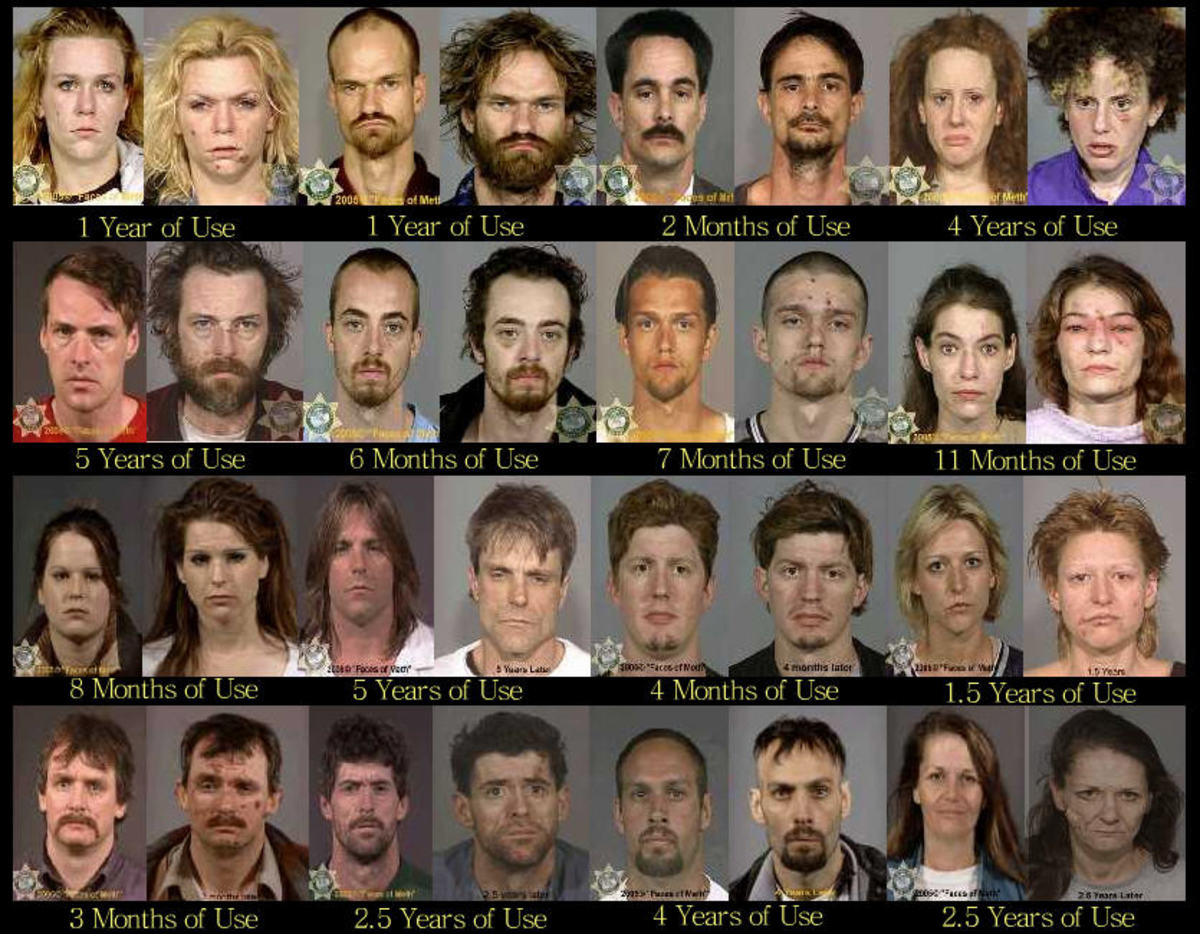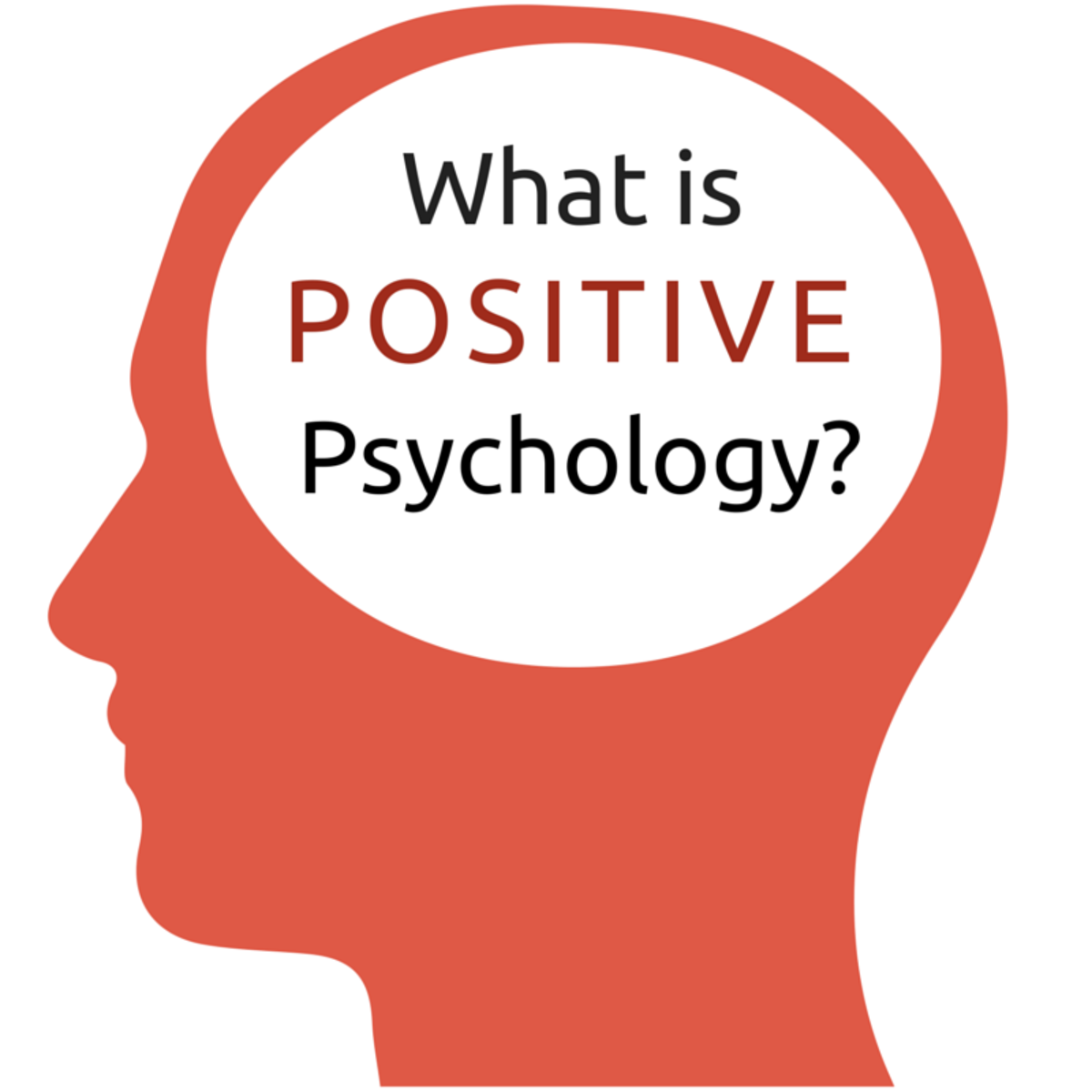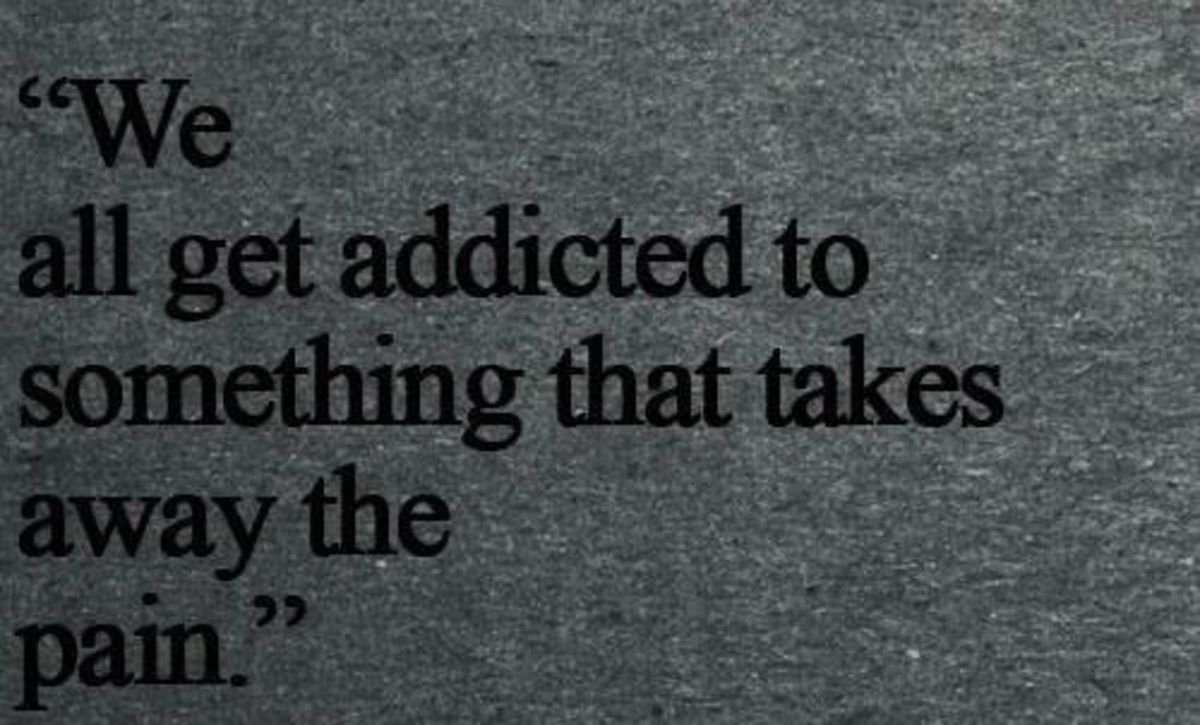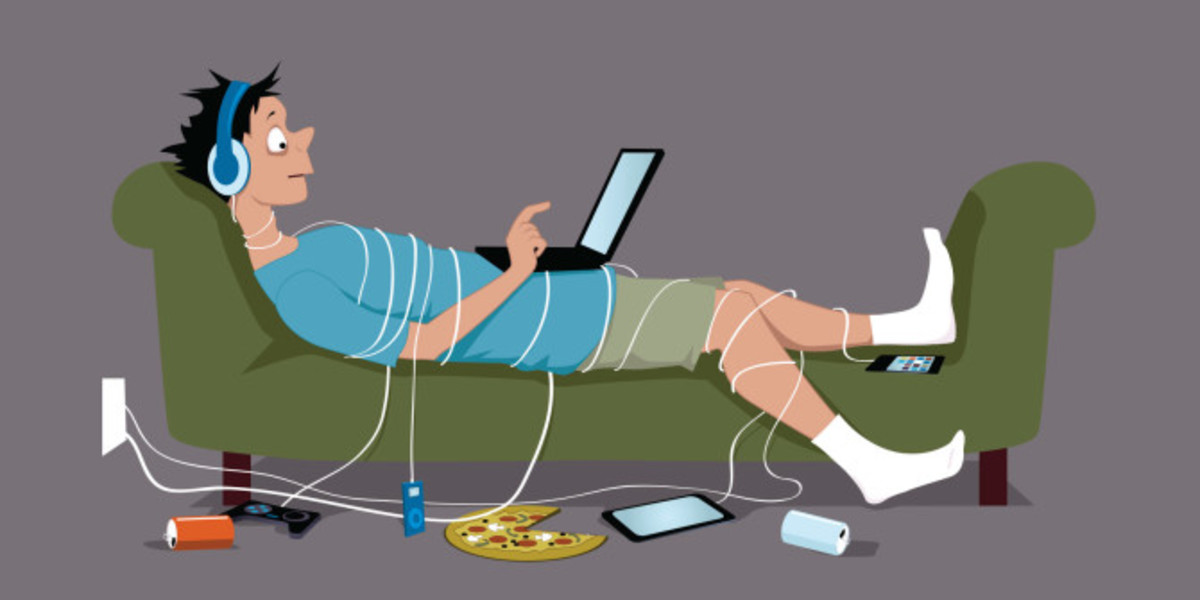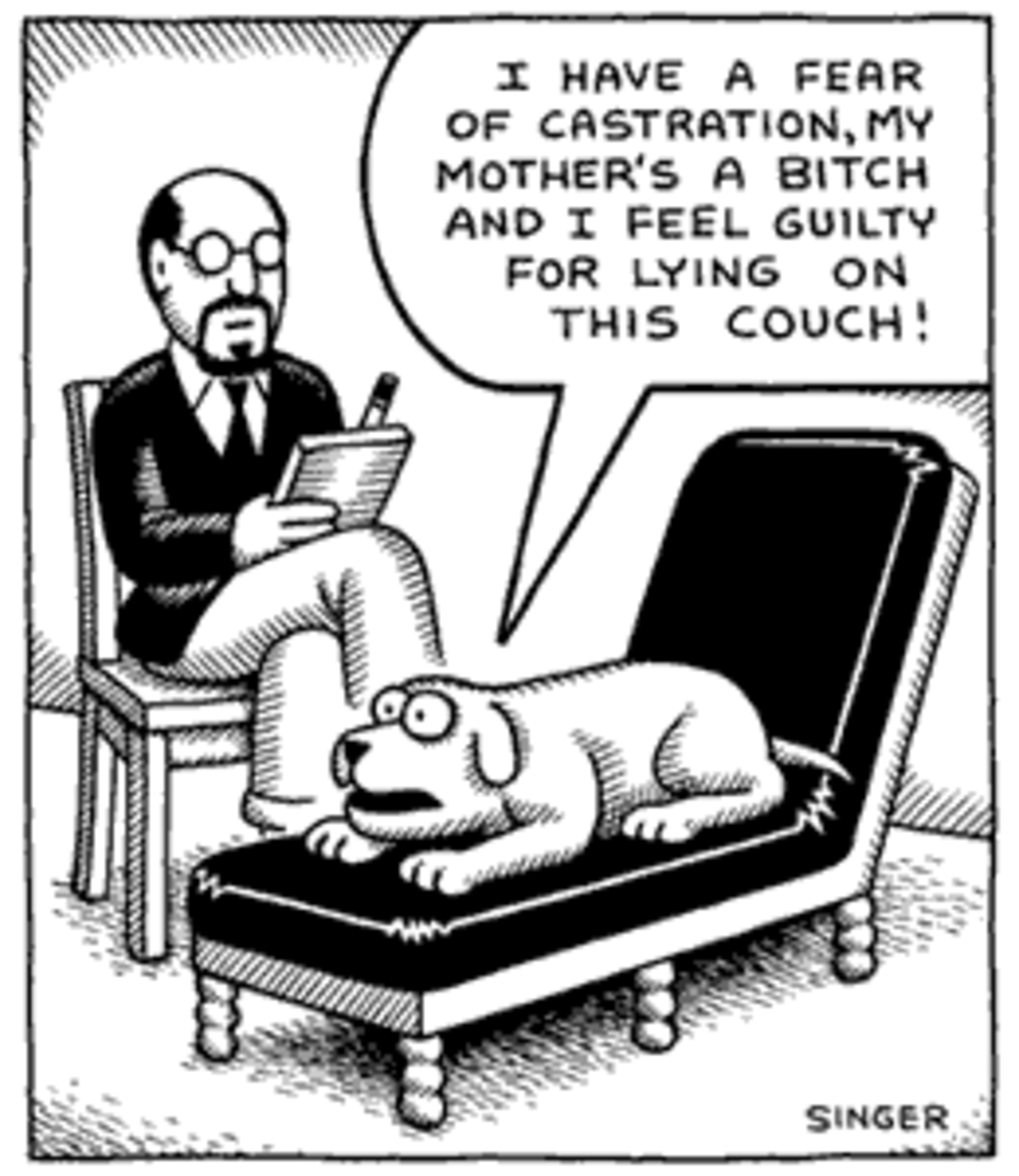Meth Addictions: How to Understand Them
Meth Addiction
It's a big fat hairy veiny problem, that can create infestations, dependence and lifelong psychological/physical injuries. It's also a problem that affects at least every 1 in 5 persons in the United States. And due to the high rate for explosions, crime, violence and aggression, it's not just a problem that affects the user.
Methanphetamines are stimulants that can cause hyper-awareness, euphoria, paranoia, an abundance of energy, hyper-focus, inhibition, impaired judgment, tachycardia, visual disturbances, lack of appetite, skin rashes, ticks, mania and depression.
Once hooked, most true addictions last at least five years, though the average is up to ten or more years. Once sobriety is sought, it can take twice as many years sober before a person can safely be considered not an addict, though that is often up for debate.
What creates a Meth Addiction?
Well, it certainly isn't the desire to become a meth addict . It's not like anyone sat down one day and said, "I really want to be a meth addict."
No. Usually, a meth addiction is triggered by a lack of fulfillment in one or more basic psychological needs and/or by peer-pressure which can create the illusion of a lack of fulfillment in one or more of your basic psychological needs. Then, the instant meth is tried, it offers significance, certainty, variety/uncertainty, connection and growth as rewards, making you instantly addicted after that first dose.
Because the unconscious/higher self found it's needs in meth, even though it was in negative ways, it still found positive intentions in continuing the negative behavior, which created and sustained the urge to continue to seek and consume meth.
Have Hope
If you're looking to become a non-meth user, then it's important to realize that Addiction in it's own rite is natural, important and necessary, but that not all things/behaviors/activities that we can become or are addicted to, are positive or necessary.
All addictions are created when three or more of your basic psychological needs are fulfilled. When that happens, you become instantly obsessed with sustaining those needs, regardless of whether the means to fulfilling your needs are positive or negative. This is because we are hard-wired to fulfill our physical and psychological needs at all costs.
Thankfully, you CAN control how you fulfill your needs, and once you understand how to do that and how to effectively communicate with your unconscious/higher self, you can control which addictions you choose to continue and which addictions you decide to leave behind.
The important thing to remember about all this, is that you cannot just "quit" anything, no matter how much you or anyone else wants you to, especially if it is something that fulfills your needs. Even if it's negative, your unconscious has a positive intention behind continuing it, and it will see it is a very bad thing to quit doing anything that fulfills your needs, and will do anything to show you it's okay to keep that addiction, UNLESS you can show it that a different and more positive addiction can fulfill those same needs equally or greater than the negative addictions.
Re-read what I said in the above few paragraphs a few times, and it will help you to start to understand what drives you to continue your negative addiction to meth. How do you feel when you are using it, and how do you feel when you don't have any? What other things in your life have previously made you feel the same ways? What is around you that triggers you to think about using meth the most, and what distracts you or takes your mind away from using the most?
If you could think of one thing that would fill your needs so well, that you wouldn't ever need to consider going back to your negative patterns?
Change Negative Addictions to Positive Addictions - Then Reinforce
The only way to truly leave meth behind, is to find positive ways to meet your basic emotional needs in greater ways than the meth addiction did. Once those positive need meeting methods are found, the only thing left to do is to study your patterns and what triggers you to go back to the negative ones, and what triggers you to use the alternative/positive methods.Then use your knowledge of your own patterns to structure an environment and mindset that makes it easier for the positive need meeting methods to prevail over the negative ones.
Some positive ways you can meet your basic emotional needs, and kick any physical withdrawals:
- Read
- Write
- Exercise
- Join a support group
- Join a hobbyist group
- Further your education
- Become a Culinary Artist
- Find an Animal Companion
- Spend time with people who encourage your positive patterns/behaviors
- Reward yourself whenever you successfully use positive thinking patterns and physical actions (such as thinking "I don't need or want this addiction.", or walking away from situations you normally would have used as excuses to continue your negative patterns)
- Contribute - to your community, family and country
Some negative patterns/behaviors you must replace:
- Denying that you have a negative addiction
- Blaming yourself - YOU are NOT the problem, your BEHAVIORS/PATTERNS are.
- Creating a positive spin on your negative patterns/behaviors to make them seem less negative or less of a problem.
- Hanging out with friends, family or associates who encourage your negative behaviors/patterns or whom triggers your urge to go back to those negative patterns.
- Using meth as a reward (i.e. it relaxes, stimulates, excites, calms me or makes me feel normal)
When helping a Meth Addict become a Non-Meth User, Keep these things in mind:
- Don't force them to give up, quit or stop their habit
- Don't become dependent on the addict for anything
- Do accept them as they are, even if it means you cannot be around them or have them in your life at the time.
- Don't get intimately involved with them, it's not something they can handle until they handle their problems.
- Be compassionate but remain objective - you can't help them by indulging them or by trying to guilt/shame/coerce them into quitting.
- Do learn about our basic psychological human needs and see if you can understand which needs are being fulfilled by the meth addiction.
- Do offer them alternative methods to fulfill their needs in positive ways
- Don't fall under the illusion that you will ever be enough to "make" them quit. Only they can choose to find a positive addiction to replace their negative one, and only they can decide to change their patterns. That choice might be swayed by your compassion, caring and kindness, but it is ultimately up to whether or not they can learn to love themselves and fulfill their needs in positive ways without you, before they can try to do it with you.
- Do stand up for yourself and make sure you are not enabling them (even unintentionally) to continue their negative patterns.
- Sometimes you have to allow an addict to hit rock bottom - lose the attention of their friends, the significance of their lives and the certainty of sympathy or help - before they can fully address how they are meeting their needs.

